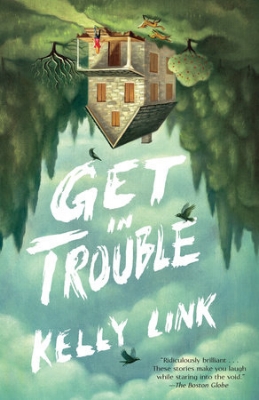Sean Tuohy and Daniel Ford rounded up their frightful favorites for your Halloween reading and viewing pleasure! Feel free to share your own suggestions in the comments section or tweet us @WritersBone.
“Trick ‘r Treat”
Sean Tuohy: If one film could sum up the Halloween spirit and scare the hell out of you, “Trick ‘r Treat” is it. Five stories featuring deadly ghost from the past, vampires, and creepy monster children, play out over Halloween night. It’ll haunt your dreams long after Halloween is over.
Seven Sins by Karen Runge
Daniel Ford: Sean hit the nail on the head when he called Runge’s collection of short stories “deeply unsettling but overwhelmingly enjoyable.” Every story makes your skin crawl, but you can’t help but marvel at Runge’s sharp, artistic prose.
“The Witch”
ST: “The Witch” features classic New England horror mixed with the supernatural that will take you on a journey through despair and horror. Following a family of Pilgrims during the 1600s, the film examines how a family can slowly crumble under a growing pressure. Unsettling and masterfully done, “The Witch” will keep you glued to the screen (even if you have your hands over your eyes).
Perfect Days by Raphael Montes
DF: You’ll never look at your luggage the same way again.
“Night of the Creeps”
ST: Master director Fred Dekker—of “Monster Squad” fame—combines a hardboiled detective story, a monster tale, and a love story in this classic ‘80s horror film. After an alien slug is let loose on a college campus, it's up to a chain-smoking detective and a nerd with a broken heart to save the day.
“The Slutty Pumpkin”
DF: “How I Met Your Mother” may have had a divisive end, but you there's no denying that this show was great once upon a time. This episode encapsulates everything that made the show must-watchable when it was on its game: Lily and Marshall’s “they’re so cute and in love it makes you want to hurl” relationship, Barney’s witty, yet sexist, machismo, and, of course, Ted Mosby’s sweet, deluded pursuit of his one true love. Throw in Robin getting dumped by a guy wearing lederhosen, and this episode is just about perfect.
“The Devil’s Backbone”
ST: Taking place during the Spanish Civil War, this creepy ghost story looks to find the human elements in the supernatural. Boys at an orphanage must confront a ghost haunting them within the walls, and then must fight the evil forces of war trying to get in.
Get in Trouble by Kelly Link
DF: Kelly Link’s stellar short story collection ended up becoming a finalist for the Pulitzer Prize, named one of the best books of the year by Time, and earned rave reviews from critics and readers alike. Not bad for a collection that features demonic houses, iBoyfriends, haunted spaceships, and plenty of weird.
The Murdery Delicious Blood Stone Secret by Peter Sherwood
DF: The first two books in Peter Sherwood's Murdery Delicious series provided plenty of thrills, humor, and delectable recipes, and the ghostly finale is no exception. The Chalmers brothers "breezy summer getaway at their newly restored ancestral home" predictably goes awry, and the Chalmers brood must survive the perils of Blood Stone Manor! As Sherwood suggests, "Do peer past the gate, won't you?"
The Troop by Nick Cutter
ST: Part Lord of the Flies, part “28 Days Later,” all horror. This novel follows a group of Boy Scouts who must fight a deadly virus that threatens to kill them all.
“The One With the Halloween Party”
DF: The only thing better than Chandler’s usual snark is Chandler being sarcastic while he’s wearing a bright pink bunny costume. Also, Joey’s Chandler impression is aces.
"Epidemiology"
DF: Zombie attack!!!! (*Sniff* Miss you, "Community.")
The Rising: Deliverance by Brian Keene
ST: When the world is overrun by demon zombies, a father teams up with a priest and woman with a haunted past to save his son. The book is filled with gore and moments that will make you wince, but you'll learn that the real monsters in this tale are the humans.
The Captive Condition by Kevin Keating
DF: As I said in last October’s “Books That Should Be On Your Radar,” every character in this novel receives a fate that I wouldn’t wish on my worst enemies. Oh, that sound you hear is likely Keating pounding the final nail in your coffin. Enjoy!
The Disappearance At Devil’s Rock by Paul Tremblay
ST: Much like Daniel warned, this novel will keep you awake at night and have you jumping at every bump and shadow.
DF: *Checks closest for creepy crawlers* Damn you, Tremblay.
The Night of the Four Horror Authors
Four horror authors in one place means four times the horror! Listen to our interview with Joe Hill, Kat Howard, Thomas Olde Heuvelt, and Paul Tremblay.























































